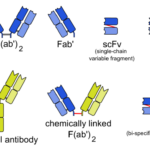U.S. leaders urge Israeli Prime Minister to conclude the Gaza conflict swiftly.
- Netanyahu received a clear message from U.S. leaders to end the Gaza war.
- Vice President Kamala Harris and Donald Trump both urged for a cease-fire.
- Netanyahu’s trip highlighted strong U.S. support for Israel but growing impatience with the ongoing conflict.
- The Israeli Prime Minister faces pressure from his right-wing coalition against a cease-fire deal.
- Negotiations with Hamas are complicated by demands regarding hostages and border control.
Israeli Prime Minister Benjamin Netanyahu’s recent visit to the U.S. has been marked by significant political dynamics as he sought to strengthen support for Israel’s military actions against Hamas. During his address to Congress, he received a standing ovation, which eased concerns back home about potential backlash from the American public regarding the ongoing conflict in Gaza. However, both Democratic and Republican leaders delivered a unified message: it’s time to end the fighting. Vice President Kamala Harris emphasized the need for a cease-fire, while former President Donald Trump echoed similar sentiments, urging Netanyahu to wrap up the conflict quickly. nnAs Netanyahu prepares for a meeting with Trump, he faces the challenge of balancing U.S. expectations with the demands of his right-wing coalition, which has threatened to withdraw support if he pursues a cease-fire. Despite accusations that he is stalling negotiations to maintain his political position, recent developments suggest Hamas may be more open to discussions. Key issues remain unresolved, including the release of hostages and control over the Gaza-Egypt border. nnThe Israeli military claims it has achieved its objectives in Gaza and is now focusing on the northern border with Hezbollah, which has been engaged in low-intensity conflict since the Gaza invasion. A cease-fire could provide a much-needed pause for Israeli troops and open avenues for addressing tensions with Hezbollah. As the Israeli Parliament approaches a recess, there is speculation that Netanyahu may act decisively to secure a cease-fire before his government faces further instability. nnNetanyahu’s visit comes at a time of political upheaval in the U.S., with President Biden’s recent withdrawal from the presidential race and Harris positioning herself as the likely Democratic nominee. The Israeli leader’s speech reinforced the notion of shared struggles between the U.S. and Israel, but the growing death toll in Gaza has intensified pressure on the Biden administration from progressive factions to advocate for a reduction in civilian casualties and a swift end to the conflict. Ultimately, the pressure Netanyahu faces domestically may prove more influential than the calls for peace from U.S. leaders.·
Factuality Level: 7
Factuality Justification: The article provides a detailed account of Netanyahu’s visit to the U.S. and the political dynamics surrounding it. While it presents factual information, there are instances of bias and opinion, particularly in the interpretation of events and the implications of Netanyahu’s actions. Some statements could be seen as sensational or lacking in neutrality, but overall, the article maintains a reasonable level of factual reporting.·
Noise Level: 7
Noise Justification: The article provides a detailed account of Netanyahu’s visit to the U.S. and the political dynamics surrounding the Israel-Hamas conflict. It includes relevant information about the cease-fire negotiations and the implications for Netanyahu’s government. However, it lacks deeper analysis of long-term trends and does not sufficiently hold powerful figures accountable for their decisions. While it stays on topic, it could benefit from more scientific rigor and actionable insights.·
Key People: Benjamin Netanyahu (Israeli Prime Minister), Joe Biden (President of the United States), Kamala Harris (Vice President of the United States), Donald Trump (Republican presidential candidate), Mitchell Barak (Former adviser to the prime minister), Gadi Wolfsfeld (Political scientist at Israel’s Reichman University), Mike Johnson (House Speaker), Chuck Schumer (Senator), Mohanad Hage Ali (Deputy director at the Malcolm H. Kerr Carnegie Middle East Center)
Financial Relevance: Yes
Financial Markets Impacted: Israeli and U.S. financial markets
Financial Rating Justification: The article discusses Israeli Prime Minister Benjamin Netanyahu’s visit to the U.S., his meetings with President Biden, Vice President Kamala Harris, and Donald Trump, and their requests for a cease-fire in Gaza. This has implications on the political situation in Israel and could potentially impact Israeli and U.S. financial markets due to the ongoing conflict and its effects on the region’s stability.
Presence Of Extreme Event: Yes
Nature Of Extreme Event: Armed Conflicts and Wars
Impact Rating Of The Extreme Event: Catastrophic
Extreme Rating Justification: The ongoing conflict has resulted in over 39,000 deaths in Gaza and significant casualties, indicating a severe humanitarian crisis and long-term consequences for the region.·
 www.wsj.com
www.wsj.com 





